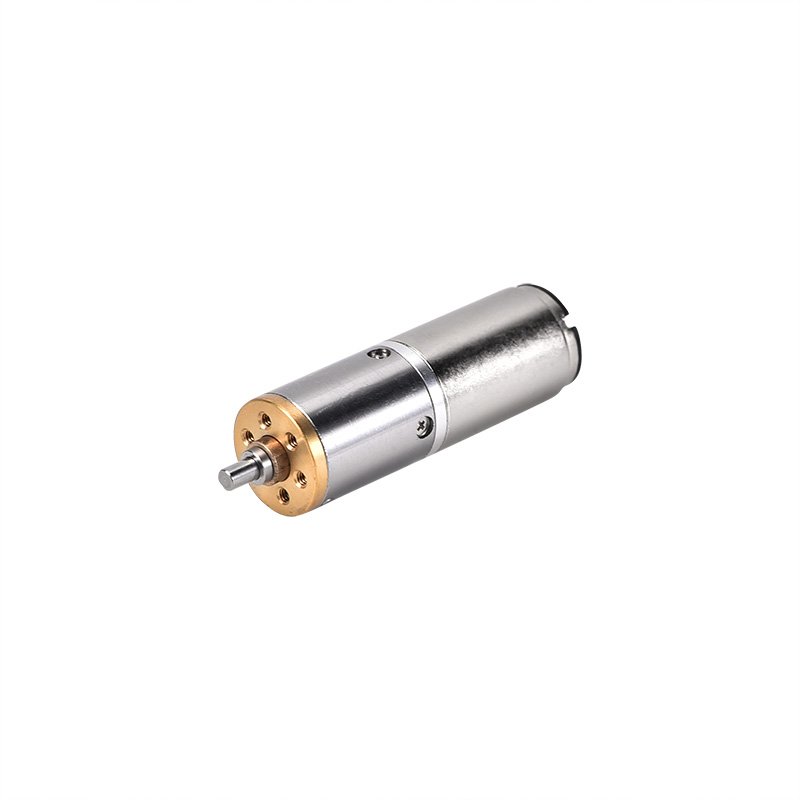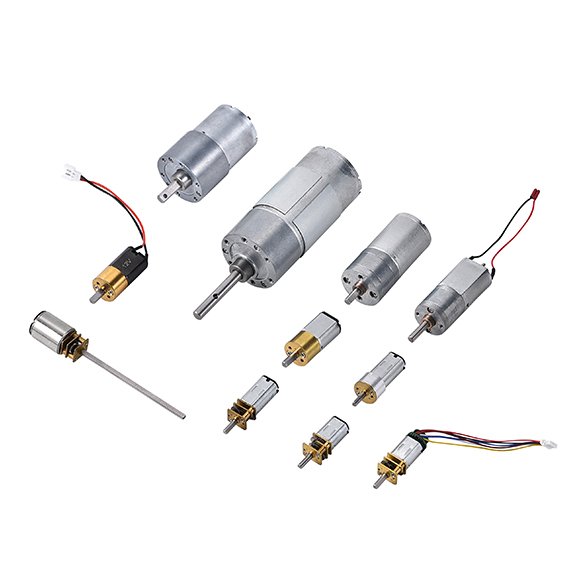Understanding and interpreting motor performance curves may seem complicated, but fear not, INEED Electronics is here to help you! While they may initially seem like a daunting set of intersecting lines, in reality, these diagrams are an effective means of illustrating the performance and capabilities of a motor or geared motor. Deciphering and understanding these curves helps improve your understanding of the motor’s operating characteristics.
Understanding the basics of DC motor cueves
The motor performance curve graphically illustrates the performance of the micro DC motor under various conditions. The most common motor performance curve is the torque-speed curve, which shows how much torque the motor can produce at different speeds.
A micro DC motor is a device that converts electrical energy into mechanical energy. Its core parameters include voltage (V), current (I, A), torque (T, Nm) and speed (RPM). By recording the values of these parameters under different working conditions, we can draw the performance characteristic curve of the motor. It is important to note that torque is usually expressed in Newton-meters (Nm), but it is also often expressed in kilogram-centimeters (Kg-cm). 1(N-m)=10.197(kg-cm)
The performance curves of micro DC motor and gear motor include:
The relationship between voltage and speed.
The relationship between torque and current.
The relationship between speed and torque.
The efficiency of the DC motor.
These curves help engineers understand the performance of motors under different loads and power conditions, enabling efficient motor system design and control.

Speed (N)
In revolutions per minute (rpm), this downward sloping line illustrates the relationship between torque and speed over the entire power range (see the blue line in the example above). Since speed and torque are inversely proportional, this line decreases linearly as torque increases until the stall point, at which point the speed reaches 0 rpm.
Speed and torque are inversely proportional. When the motor produces the minimum torque, the speed is the highest, and when the motor produces the maximum torque, the motor hardly rotates.
Efficiency (η)
Efficiency is the relationship between input power and output power, expressed as a percentage (%). This line is more or less a parabola whose vertices tend to lower torque values (see the pink line in the example above). It usually peaks early in the torque range and then gradually decreases as the motor approaches its stall torque.
Using a motor close to its peak efficiency ensures optimal motor life and power consumption. Best practices require the use of motors that operate at or near their maximum efficiency. The further a motor deviates from its peak efficiency, the less reliable its performance becomes.
Torque (T)
Torque is measured in kilogram centimeters, pound inches, or Newton meters, and is the capacity of a motor or gear motor output shaft to withstand a load. On the performance curve of DC motors/gear motors, torque is usually represented by the X-axis.
The point where the velocity line (N) intersects the X-axis is the point of stalling moment (T). This is where the motor produces maximum torque but can no longer rotate. It is important to ensure that the force required by the motor is significantly less than the overall torque capacity (stall torque); Otherwise, the motor will not operate as expected and there is a high risk of damage.
Current (I)
This is represented by a linear rising line (see the blue and green lines in the example above), which reflects the current from no-load to stall. This line illustrates the direct relationship between amperage and torque.
If your application is power conscious, it is recommended to operate the motor at maximum efficiency. This achieves balanced motor performance, requiring a reasonable current level. During the motor performance evaluation, paying attention to the current diagram can provide a more accurate understanding of the load conditions encountered by the motor in the application.
Output power (P)
The output power is probably the most intuitive number in the entire chart, which shows how much power (in watts) the motor can deliver (see the green line in the example above).
Power is a measure of work over time, usually expressed in a standard parabolic shape. Motor power depends on speed and torque, high speed, low torque, low power, and vice versa. This means that power usually peaks at the midpoint between top speed and stall point.
Do you have a clearer understanding of the performance curve now? Or, you can contact our engineers immediately for further assistance and guidance.

FAQ
How to calculate the performance of DC motor?
The performance of a DC motor is evaluated by multiplying the current of the motor by the applied voltage, which produces the input power. At each specified calculation point, the efficiency (η) of the motor is determined by dividing the mechanical power output by the electrical power input.
What is the curve of a Micro DC motor?
The DC motor curves, especially torque-speed curves, illustrate the ability of a motor to deliver power based on a specific input voltage. In rotational motion, power (P) is defined as the product of torque and speed.








13 Responses
DqbbxSKdHdopjPJoiVdDrxbVR
It’s really a great and helpful piece of info. I am glad that you shared this useful information with us. Please keep us up to date like this. Thanks for sharing.
Wonderful work! This is the type of information that should be shared around the internet. Shame on the search engines for not positioning this post higher! Come on over and visit my web site . Thanks =)
I wanted to post you that bit of remark so as to give many thanks the moment again for your personal lovely strategies you’ve documented here. It has been simply strangely open-handed with people like you to give unreservedly what exactly a few individuals could have supplied as an e book to help with making some dough for themselves, and in particular considering the fact that you might have done it if you considered necessary. These creative ideas in addition worked to become great way to comprehend most people have the identical passion like my personal own to find out a whole lot more with regard to this issue. I think there are several more fun periods up front for those who discover your website.
I used to be suggested this web site by my cousin. I am now not sure whether or not this post is written through him as no one else know such specific about my difficulty. You are wonderful! Thank you!
Hey very nice web site!! Man .. Excellent .. Amazing .. I will bookmark your site and take the feeds also…I’m happy to find so many useful info here in the post, we need work out more strategies in this regard, thanks for sharing. . . . . .
I’d must examine with you here. Which is not one thing I usually do! I enjoy reading a put up that may make individuals think. Also, thanks for allowing me to remark!
I was recommended this web site by my cousin. I am not sure whether this post is written by him as nobody else know such detailed about my problem. You’re incredible! Thanks!
I was recommended this web site through my cousin. I am now not sure whether or not this put up is written by him as nobody else recognise such particular about my trouble. You’re incredible! Thank you!
Thank you for the auspicious writeup. It in fact used to be a leisure account it. Glance complicated to far introduced agreeable from you! However, how can we keep in touch?
Thanks for the auspicious writeup. It actually was once a leisure account it. Look advanced to more delivered agreeable from you! However, how could we keep up a correspondence?
great post, very informative. I’m wondering why the opposite experts of this sector do not realize this. You should continue your writing. I am sure, you’ve a huge readers’ base already!